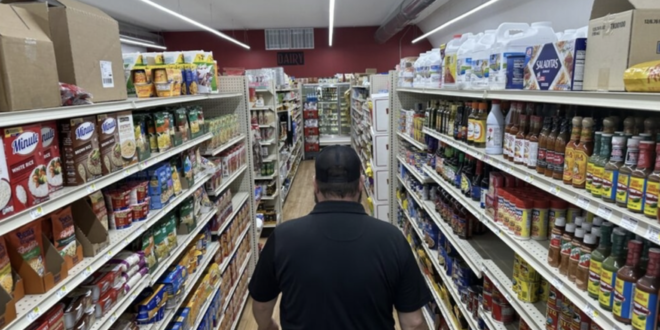Trenton, NJ – New Jersey lawmakers are moving forward with comprehensive legislation to combat organized retail crime (ORC), a growing issue that has devastated small businesses across the state. The bipartisan bill, A-4755, is set to be reviewed by the Assembly Public Safety and Preparedness Committee this week, aiming to give retailers a fighting chance against sophisticated theft rings that cost the industry billions annually.
The proposed legislation comes at a critical time. According to the National Retail Federation (NRF), over two-thirds of businesses reported an increase in violence and aggression linked to organized retail crime in 2023, compared to the previous year. Neighboring states like New York, Pennsylvania, and Maryland have already introduced tougher laws, leaving New Jersey retailers vulnerable to professional theft rings that often resell stolen goods in the gray market.
A Threat to Small Businesses
While organized retail crime affects businesses of all sizes, its impact on small, independent retailers is particularly severe. For grocers and other small retailers, every stolen item directly impacts their ability to stay afloat. These businesses often operate on tight margins, and large-scale theft can erase an entire day’s profits.
“Imagine putting in a full day’s work, only to lose it all because of repeated theft,” said a representative for New Jersey’s small food retailers. “That’s the reality for many of us.”
Organized crime groups frequently target high-demand products such as baby formula, over-the-counter medications, razors, and energy drinks. These items are stolen in bulk and resold online or in informal marketplaces, further complicating law enforcement efforts.
Key Provisions of the Bill
Sponsored by Assembly members Joe Danielson, Alex Sauickie, and Heather Simmons, A-4755 introduces several measures to strengthen New Jersey’s fight against organized retail theft:
- Stronger Penalties: The bill creates the crime of aggravated assault of a retail worker and allows for enhanced sentencing for repeat offenders.
- Expanded Investigative Resources: A unit within the Department of Law and Public Safety will focus on investigating and prosecuting ORC cases, including gift card fraud.
- One-Year Look-Back Period: Prosecutors will have a full year to aggregate the value of stolen goods, ensuring high-value thefts are graded appropriately.
- Targeting Leaders: Leadership of an organized retail theft enterprise would carry upgraded penalties, reflecting the hierarchical nature of these operations.
Statewide Support
The New Jersey Food Council and other business associations have expressed strong support for the legislation, calling it a necessary step to protect retailers, employees, and shoppers. The bill also aligns with national efforts, as the NRF continues to advocate for the passage of the Combating Organized Retail Crime Act in Congress.
“Organized retail crime is not just petty theft—it’s a professional operation with far-reaching consequences,” said David Johnston, NRF’s vice president of asset protection and retail operations. “States like California have taken strong action, and it’s time for New Jersey to follow suit.”
A Growing National Problem
The issue extends beyond retail theft. Johnston highlighted the connection between ORC and other crimes, including cargo theft, e-commerce fraud, and return fraud, which are not factored into traditional “shrink” percentages. According to recent estimates, ORC could cost the retail industry over $140 billion in 2025, with cargo theft alone accounting for 58% of these losses.
A Call to Action
As the bill moves through the legislative process, small businesses and community leaders are urging swift action. Lawmakers, law enforcement, and retailers must collaborate to address this pressing issue.
“Organized retail crime doesn’t just hurt businesses; it harms communities,” said a local retailer. “We need this legislation to protect our livelihoods and ensure safe, affordable shopping for everyone.”
If passed, A-4755 will position New Jersey as a leader in combating organized retail crime, providing a model for other states grappling with this growing epidemic.
 RLP NEWS
RLP NEWS


